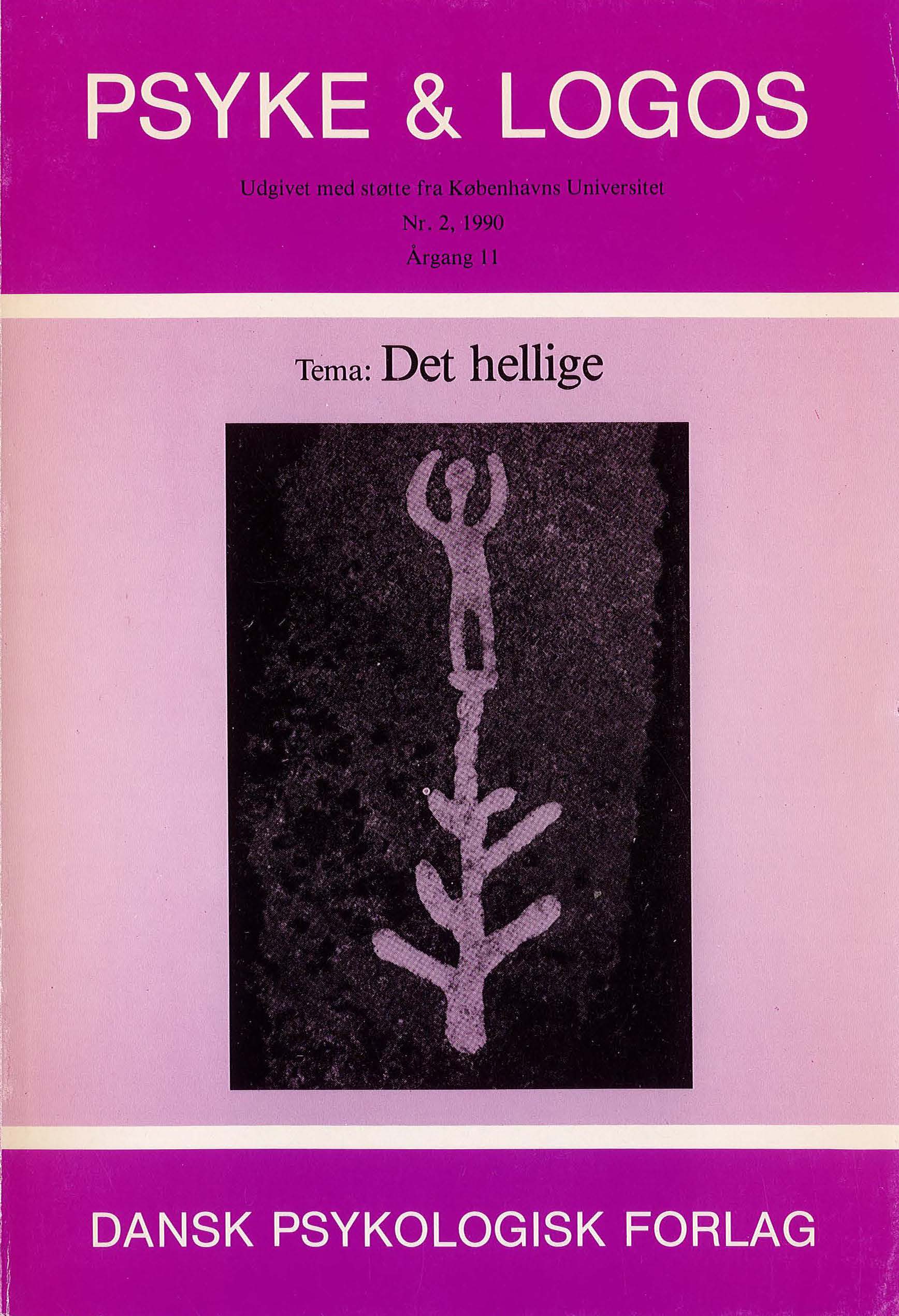På sporet af det hellige
Om Mircea Eliades hierologi
DOI:
https://doi.org/10.7146/pl.v11i2.135350Abstract
This paper: On The Track of the Sacred - On Mircea Eliade's Hierology, presents the basic theories about the Holy or the Sacred, as developed by the phenomenologist of religion Mircea Eliade (1907-1986). Further the authors briefly discuss (among other things) wether the Holy, in Eliades understanding, has an actual existance or wether it is a product of human, religious creativity, i.e. a psychological phenomenon of some kind. One theme in particular is taken into consideration, namely Eliades notion that states that
the Holy manifests itself through the profane. According to Eliade, the phenomenon throught which the Holy manifests itself is not Holy. It remains in its essence profane. The incarnation of God in Jesus Christ, as an example, is regarded as a supreme expression of the manifestation of the Holy (God) through the otherwise profane (Jesus/Man). Through an example derived from the vaisnava-tradition of Hinduism, it is shown however, that things or phenomenons in themselves can be Holy. The example here indicate the holyness of Nature in vaisnava heology, through references to Bhagavad-gita and Bhagavad Purana. (Srimad Bhagavatam) (including commentaries by followers of this religion). In these texts it is stated, that God (Krishna) manifests himself in every atom of Creation, that Nature is His body, and that the forces of Nature (the gunas) are within him. Krishna does not merely manifests Himself throught the natura) objects: He is so deeple identified with Nature, that any separate identification of Nature as a category, apart from Krishna is meeningless. Thus the paper indicates a problem in Eliades universally applied hierology, as the Holy in
vaisnava tradition is identical with the objects in which it manifests. The authors wishes to emphazise that the paper is an introduction or a scetch with no fullscale argumentation.
Downloads
Published
How to Cite
Issue
Section
License
Ophavsret er tidsskriftets og forfatternes. Det er gældende praksis, at artikler publiceret i Psyke & Logos, som efterfølgende oversættes til andet sprog, af forfatteren frit kan publiceres i internationale tidsskrifter, dog således at det ved reference fremgår, at den oversatte artikel har et forlæg i en dansksproget version i Psyke & Logos. Artikler kan frit deles og linkes til på forsknings- og undervisningsnetværk (så som Blackboard). Link foretrækkes, fordi det giver oplysning om brug af tidsskriftets artikler.




